- Home
- Tim LaHaye
The Left Behind Collection: All 12 Books Page 14
The Left Behind Collection: All 12 Books Read online
Page 14
“His name is Burton. Dirk Burton. He works at the exchange.”
“Let me do some checking and call you back.”
A few minutes later, Buck’s phone rang.
“Yes, Tompkins from the Yard. I wonder if you would be so kind as to come in and see me.”
Early on Saturday morning in Mount Prospect, Illinois, Rayford Steele phoned the New Hope Village Church again. This time a man answered the phone. Rayford introduced himself as the husband of a former parishioner. “I know you, sir,” the man said. “We’ve met. I’m Bruce Barnes, the visitation pastor.”
“Oh, yes, hi.”
“By former parishioner, I assume you’re telling me that Irene is no longer with us?”
“That’s right, and our son.”
“Ray Jr., wasn’t it?”
“Right.”
“You also had an older daughter, did you not, a nonattender?”
“Chloe.”
“And she—?”
“Is here with me. I was wondering what you all make of this—how many people have disappeared, are you still meeting, that kind of thing. I know you have a service on Sundays and that you’re offering this DVD.”
“Well, you know just about everything then, Mr. Steele. Nearly every member and regular attender of this church is gone. I am the only person on the staff who remains. I have asked a few women to help out in the office. I have no idea how many will show up Sunday, but it would be a privilege to see you again.”
“I’m very interested in that DVD.”
“I’d be happy to give you one in advance. It’s what I will be discussing Sunday morning.”
“I don’t know how to ask this, Mr. Barnes.”
“Bruce.”
“Bruce. You’ll be teaching or preaching or what?”
“Discussing. I will be playing the DVD for any who have not heard it, and then we will discuss it.”
“But you . . . I mean, how do you account for the fact that you are still here?”
“Mr. Steele, there is only one explanation for that, and I would prefer to discuss it with you in person. If I know when you might come by for the DVD, I’ll be sure to be here.”
Rayford told him he and perhaps Chloe would come by that afternoon.
Alan Tompkins waited just inside the vestibule at Scotland Yard. When Buck arrived, Alan formally shook his hand and led him to a rundown compact, which he drove quickly to a dark pub a few miles away. “Let’s not talk till we get there,” Alan said, continually checking his mirrors. “I need to concentrate.” Buck had never seen his friend so agitated and, yes, scared.
The pair took pints of dark ale to a booth in a secluded corner, but Alan never touched his. Buck, who hadn’t eaten since the flight, switched his empty mug for Alan’s full one and downed it, too. When the waitress came for the mugs, Buck ordered a sandwich. Alan declined, and Buck, knowing his limit, ordered a soda.
“I know this will be like pouring petrol on a flame,” Alan began, “but I need to tell you this is a nasty business and that you want to stay as far away from it as you can.”
“Darn right you’re fanning my flame,” Buck said. “What’s going on?”
“Well, they say it’s suicide, but—”
“But you and I both know that’s nonsense. What’s the evidence? Have you been to the scene?”
“I have. Shot through the temple, gun in his hand. No note.”
“Anything missing?”
“Didn’t appear to be, but, Cameron, you know what this is about.”
“I don’t!”
“Come, come, man. Dirk was a conspiracy theorist, always sniffing around Todd-Cothran’s involvement with international money men, his role in the three-currency conference, even his association with your Stonagal chap.”
“Alan, there are books about this stuff. People make a hobby of ascribing all manner of evil to the Tri-Lateral Commission, the Illuminati, even the Freemasons, for goodness sake. Dirk thought Todd-Cothran and Stonagal were part of something he called the Council of Ten or the Council of Wise Men. So what? It’s harmless.”
“But when you have an employee, admittedly several levels removed from the head of the exchange, trying to connect his boss to conspiracy theories, he has a problem.”
Buck sighed. “So he gets called on the carpet, maybe he gets fired. But tell me how he gets dead or pushed to suicide.”
“I’m going to tell you something, Cameron,” Alan said. “I know he was murdered.”
“Well, I’m pretty sure he was, too, because I think I’d have had a clue if he was suicidal.”
“They’re trying to pin it on his remorse over losing people in the great disappearance, but it won’t wash. He didn’t lose anybody close as far as I know.”
“But you know he was murdered? Pretty strong words for an investigator.”
“I know because I knew him, not because I’m an investigator.”
“That won’t hold up,” Buck said. “I can also say I knew him and that he couldn’t have committed suicide, but I’m prejudiced.”
“Cameron, this is so simple it would be a cliché if Dirk wasn’t our friend. What did we always kid him about?”
“Lots of things. Why?”
“We kidded him about being such a klutz.”
“Yeah. So?”
“If he was with us right now, where would he be sitting?”
It suddenly dawned on Buck what Alan was driving at. “He would be sitting to one of our lefts, and he was such a klutz because he was left-handed.”
“He was shot through the right temple and the so-called suicide weapon was found in his right hand.”
“So what did your bosses say when you told them he was left-handed and that this had to be murder?”
“You’re the first person I’ve told.”
“Alan! What are you saying?”
“I’m saying I love my family. My parents are still living and I have an older brother and sister. I have a former wife I’m still fond of. I wouldn’t mind snuffing her myself, but I certainly wouldn’t want anyone else harming her.”
“What are you afraid of?”
“I’m afraid of whoever was behind Dirk’s murder, of course.”
“But you’d have all of Scotland Yard behind you, man! You call yourself a law-enforcement officer and you’re going to let this slide?”
“Yes, and that’s just what you’re going to do!”
“I am not. I wouldn’t be able to live with myself.”
“Do something about this and you won’t be alive at all.”
Buck waved the barmaid over and asked for chips. She brought him a heaping, greasy mass. It was just what he wanted. The ale had worked on him and the sandwich had not been enough to counteract it. He felt light-headed, and he was afraid he might not be hungry again for a long time.
“I’m listening,” he whispered. “What are you trying to tell me? Who’s gotten to you?”
“If you believe me, you won’t like it.”
“I have no reason not to believe you and I already don’t like it. Now spill.”
“Dirk’s death was ruled a suicide and that was that. Scene cleared, body cremated. I asked about an autopsy and was laughed off. My superior officer, Captain Sullivan, asked what I thought an autopsy would show. I told him abrasions, scrapes, signs of a struggle. He asked if I thought it made sense that a bloke would wrestle with himself before shooting himself. I kept the personal knowledge to myself.”
“Why?”
“I smelled something.”
“What if I put a story in an international magazine that pointed out the discrepancies? Something would have to happen.”
“I have been told to tell you to go home and forget you ever heard about this suicide.”
Buck squinted in disbelief. “Nobody knew I was coming.”
“I think that’s true, but somebody assumed you might show up. I wasn’t surprised you came.”
“Why should you be? My friend is dead, os
tensibly by his own hand. I wasn’t going to ignore that.”
“You’re going to ignore it now.”
“You think I’m going to turn coward just because you did?”
“Cameron, you know me better than that.”
“I wonder if I know you at all! I thought we were kindred spirits. We were justice freaks, Alan. Seekers of truth. I’m a journalist; you’re an investigator. We’re skeptics. What is this running from the truth, especially when it concerns our friend?”
“Did you hear me? I said I was told to call you off, if and when you showed up.”
“Then why did you let me come to the Yard?”
“I’d have been in trouble if I had tipped you off.”
“With whom?”
“I thought you’d never ask. I was visited by what you in America call a goon.”
“A heavy?”
“Precisely.”
“He threatened you?”
“He did. He said if I didn’t want what had happened to my friend to happen to me or to my family, I would do as he said. I was afraid he was the same guy who had murdered Dirk.”
“And he probably was. So, why didn’t you report the threat?”
“I was going to. I started by trying to handle it myself. I told him he didn’t have to worry about me. The next day I went to the exchange and asked for a meeting with Mr. Todd-Cothran.”
“The big man himself?”
“In the flesh. I don’t have an appointment, of course, but I insist it’s Scotland Yard business, and he allows me in. His very office is intimidating. All mahogany and dark green draperies. Well, I get right down to business. I tell him, ‘Sir, I believe you’ve had an employee murdered.’ And just as calm as you like, he says, ‘Tell you what, governor’—which is a term cockneys use on each other, not something people of his station usually call people of mine. Anyway, he says, ‘Tell you what, governor, the next time somebody visits your flat at ten o’clock at night, as a certain gentleman did last night, greet him for me, won’t you?’”
“What did you say?”
“What could I say? I was stunned to silence! I just looked at him and nodded. ‘And let me tell you something else,’ he says. ‘Tell your friend Williams to keep out of this.’ I say, ‘Williams?’ like I don’t know who he’s talking about. He ignores that because, of course, he knows better.”
“Somebody listened to Dirk’s voice mail.”
“No question. And he says, ‘If he needs convincing, just tell him I’m as partial as he is to Dad and Jeff.’ That your brother?”
Buck nodded. “So you caved?”
“What was I supposed to do? I tried playing Mr. Brave Boy. I said, ‘I could be wired. I could be recording this conversation.’ Cool as can be, he said, ‘Metal detector would have picked it up.’ ‘I’ve got a good memory. I’ll expose you,’ I told him. He said, ‘At your own risk, governor. Who’s going to believe you over me? Marianne wouldn’t even believe you—of course, she might not be healthy enough to understand.’”
“Marianne?”
“My sister. But that’s not the half of it. As if he needs to drive the point home, he called my captain on his speakerphone. He said to him, ‘Sullivan, if one of your men was to come to my office and harass me about anything, what should I do?’ And Sullivan, one of my idols, sounded like a little baby. He said, ‘Mr. Todd-Cothran, sir, you do whatever you need to do.’ And Todd-Cothran said, ‘What if I was to kill him where he sits?’ And Sullivan said, ‘Sir, I’m sure it would be justifiable homicide.’ Now get this. Todd-Cothran said, right over the phone to Scotland Yard, where you know they record every incoming call, and Todd-Cothran knows it just as well, ‘What if his name happened to be Alan Tompkins?’ Just like that, plain as day. And Sullivan said, ‘I’d come over there and dispose of the body myself.’ Well, I got the picture.”
“So you have no one to turn to.”
“Nobody I can think of.”
“And I’m supposed to just turn tail and run.”
Alan nodded. “I have to report back to Todd-Cothran that I’ve delivered the message. He’ll expect you on the next plane out.”
“And if I’m not?”
“No guarantees, but I wouldn’t push it.”
Buck shoved the plates aside and pushed his chair back. “Alan, you don’t know me well, but you have to know I’m not the type of guy who takes this stuff sitting down.”
“That’s what I was afraid of. I’m not either, but where do I turn? What do I do? You’d think someone somewhere can be trusted, but what can anyone do? If this proves Dirk was right, that he got too close to some clandestine thing Todd-Cothran was into, where does it end? Does it include your man Stonagal? And how about the others on the international team of financiers they meet with? Have you considered that they may own everybody? I grew up reading the stories about your Chicago mobsters who had paid off cops and judges and even politicians. No one could touch them.”
Buck nodded. “No one could touch them except the ones who couldn’t be bought.”
“The Untouchables?”
“Those were my heroes,” Buck said.
“Mine too,” Alan said. “That’s why I’m an investigator. But if the Yard is dirty, who do I turn to?”
Buck rested his chin in his hand. “Do you think you’re being watched? Followed?”
“I’ve been looking for that. So far, no.”
“Nobody knows where we are now?”
“I tried to keep an eye out for a tail. In my professional opinion, we’re here unnoticed. What are you going to do, Cameron?”
“There’s precious little I can do here, apparently. Maybe I’ll head back right away under a different name and make it look, to whoever cares, like I’m being obstinate and staying here.”
“What’s the use?”
“I may be scared, Alan, but I will look for my angle. And somehow I will find the person with the clout to help. I don’t know your country well enough to know whom to trust. Of course I trust you, but you’ve been incapacitated.”
“Am I weak, Cameron? Do you see that I have a choice?”
Buck shook his head. “I feel for you,” he said. “I can’t say what I’d do in your place.”
The barmaid was making some sort of an announcement, asking people a question at every other table or so. As she neared them, Buck and Alan fell silent to hear. “Anyone drivin’ a light green sedan? Fella says the inside light is on.”
“That’s mine,” Alan said. “I don’t remember even having the inside light on.”
“Me either,” Buck said, “but it was light out when we got here. Maybe we didn’t notice.”
“I’ll get it. Probably won’t hurt anything, but that old beater’s battery can’t take much.”
“Careful,” Buck said. “Be sure no one was tampering with it.”
“Unlikely. We’re right in front, remember.”
Buck leaned out of his chair and followed Alan with his eyes as the investigator strolled out. Sure enough, the car’s inside light could be seen from inside the pub. Alan went around to the driver’s side and reached in to turn the light off. When he came back he said, “Gettin’ daft in my old age. Next I’ll be leavin’ the headlights on.”
Buck was sad, thinking of his friend’s predicament. What a spot, working at something you’d wanted all your life to do and knowing that your superiors were beholden to what amounted to an international thug. “I’m going to call the airport and see if I can get a flight tonight.”
“Nothin’s going your way this time of the evening,” Alan said.
“I’ll take something to Frankfurt and head back from there in the morning. I don’t think I should test my luck here.”
“There’s a phone up by the door. I’ll pay the girl.”
“I insist,” Buck said, sliding a fifty-Euro bill across the table.
Buck was on the phone to Heathrow while Alan counted the change from the barmaid. Buck got a seat on a flight to Frankfurt forty-five m
inutes later that would allow him to catch a Sunday morning flight to JFK.
“Oh, Kennedy’s open, is it?” he said.
“Just an hour ago,” the woman said. “Limited flights, but your Pan-Continental out of Germany goes there in the morning. How many passengers?”
“One.”
“Name?”
Buck peeked in his wallet to remind himself of the name on his phony British passport. “Pardon?” he said, stalling, as Alan approached.
“Name, sir.”
“Oh, sorry. Oreskovich. George Oreskovich.”
Alan mouthed that he would be in the car. Buck nodded.
“All right, sir,” the woman said. “You’re all set with a flight to Frankfurt this evening, continuing to JFK in New York tomorrow. Can I do anything else for you?”
“No, thank you.”
As Buck hung up, the door of the pub was blown into the room and a blinding flash and deafening crash sent patrons screaming to the floor. As people crept to the door to see what had happened, Buck stared in horror at the frame and melted tires of what had been Alan’s Scotland Yard–issue sedan. Windows had been blown out all up and down the street and a siren was already sounding. A leg and part of a torso lay on the sidewalk—the remains of Alan Tompkins.
As the patrons surged out to get a look at the burning wreckage, Buck elbowed his way through them, pulling his real passport and identification from his wallet. In the confusion he flipped the documents near what was left of the car and hoped they wouldn’t get burned beyond readability. Whoever wanted him dead could assume him dead. Then he slipped through the crowd into the now-empty pub and sprinted to the back. But there was no back door, only a window. He raised it and crawled through, finding himself in a two-foot alleyway between buildings. Scraping his clothes on both sides as he hurried to a side street, he ran two blocks and hailed a cab. “The Tavistock,” he said.
A few minutes later, when the cabbie was within three blocks of his hotel, Buck saw squad cars in front of the place and blocking traffic. “Just run me out to Heathrow, please,” he said. He realized he had left his laptop among his things, but he had no choice. He had transferred the best stuff electronically already, but who knew who would have access to his material now?

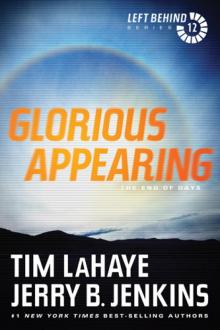 Glorious Appearing: The End of Days
Glorious Appearing: The End of Days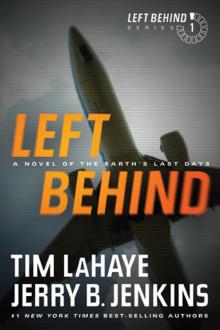 Left Behind: A Novel of the Earth's Last Days
Left Behind: A Novel of the Earth's Last Days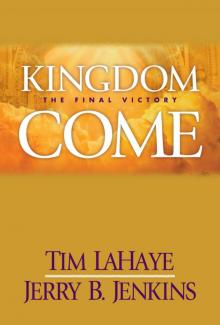 Kingdom Come: The Final Victory
Kingdom Come: The Final Victory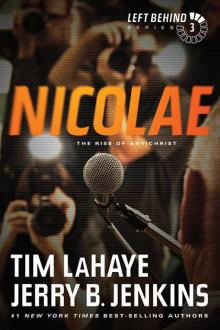 Nicolae: The Rise of Antichrist
Nicolae: The Rise of Antichrist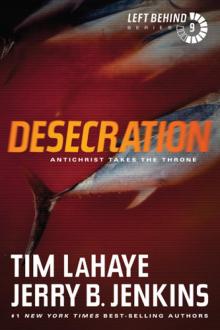 Desecration: Antichrist Takes the Throne
Desecration: Antichrist Takes the Throne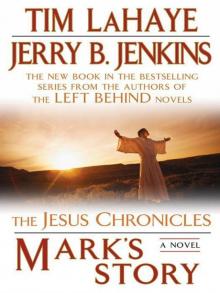 Mark's Story: The Gospel According to Peter
Mark's Story: The Gospel According to Peter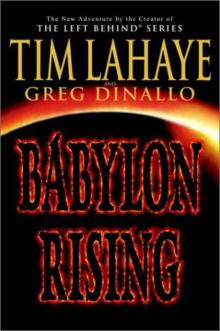 Babylon Rising
Babylon Rising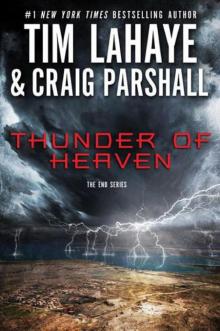 Thunder of Heaven: A Joshua Jordan Novel
Thunder of Heaven: A Joshua Jordan Novel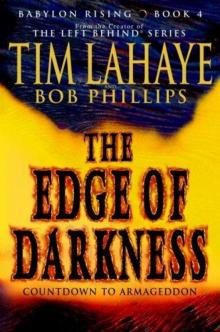 The Edge of Darkness
The Edge of Darkness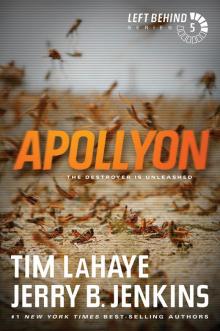 Apollyon: The Destroyer Is Unleashed
Apollyon: The Destroyer Is Unleashed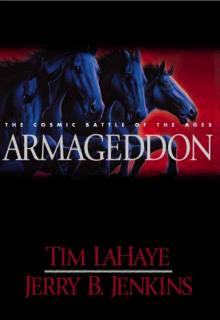 Armageddon: The Cosmic Battle of the Ages
Armageddon: The Cosmic Battle of the Ages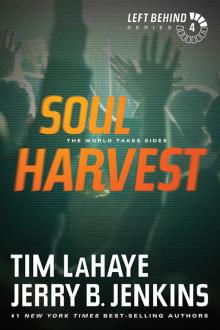 Soul Harvest: The World Takes Sides
Soul Harvest: The World Takes Sides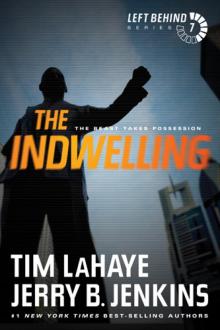 The Indwelling: The Beast Takes Possession
The Indwelling: The Beast Takes Possession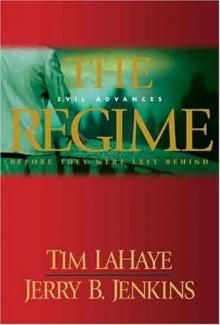 The Regime: Evil Advances
The Regime: Evil Advances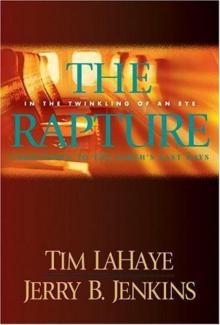 The Rapture: In the Twinkling of an Eye / Countdown to the Earth's Last Days
The Rapture: In the Twinkling of an Eye / Countdown to the Earth's Last Days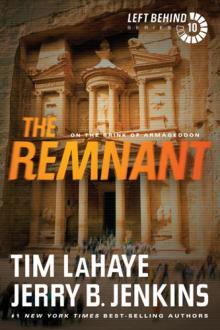 The Remnant: On the Brink of Armageddon
The Remnant: On the Brink of Armageddon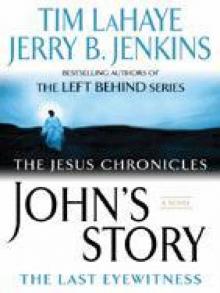 John's Story: The Last Eyewitness
John's Story: The Last Eyewitness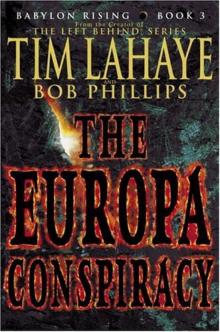 The Europa Conspiracy
The Europa Conspiracy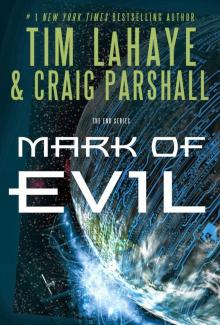 Mark of Evil
Mark of Evil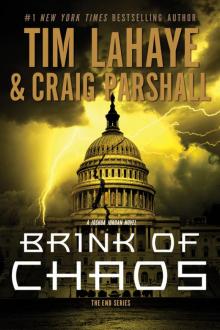 Brink of Chaos
Brink of Chaos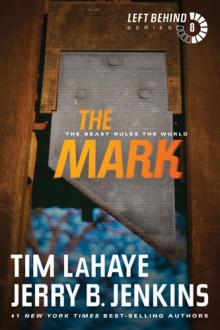 The Mark: The Beast Rules the World
The Mark: The Beast Rules the World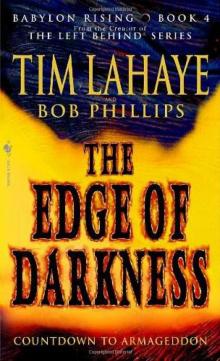 04 The Edge of Darkness
04 The Edge of Darkness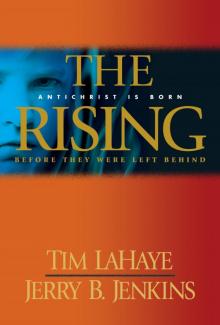 The Rising: Antichrist is Born / Before They Were Left Behind
The Rising: Antichrist is Born / Before They Were Left Behind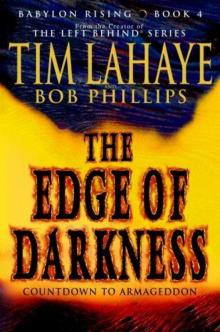 Babylon Rising: The Edge of Darkness
Babylon Rising: The Edge of Darkness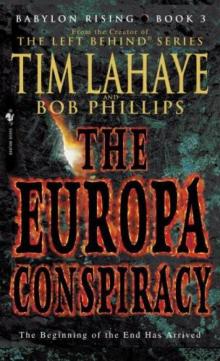 03 The Europa Conspiracy
03 The Europa Conspiracy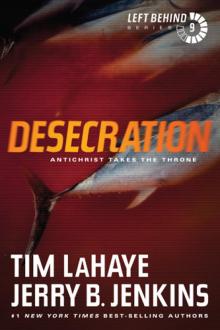 Desecration
Desecration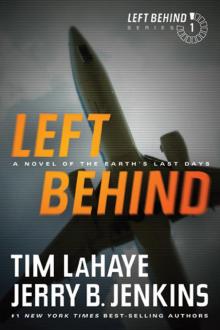 Left Behind
Left Behind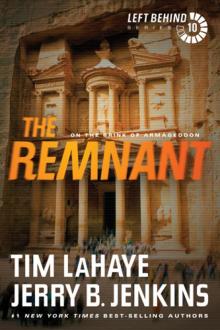 The Remnant
The Remnant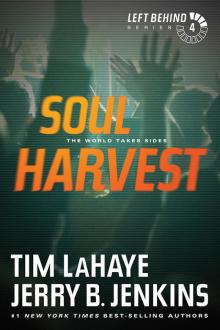 Soul Harvest
Soul Harvest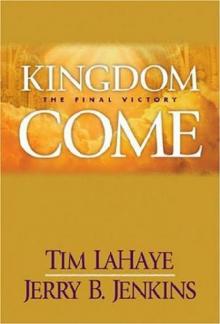 Left Behind Book 13: Kingdom Come The Final Victory
Left Behind Book 13: Kingdom Come The Final Victory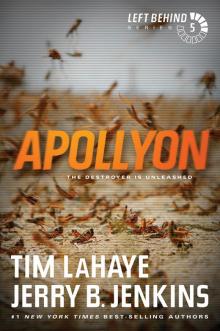 Apollyon
Apollyon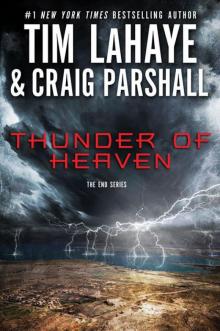 02 Thunder of Heaven: A Joshua Jordan Novel
02 Thunder of Heaven: A Joshua Jordan Novel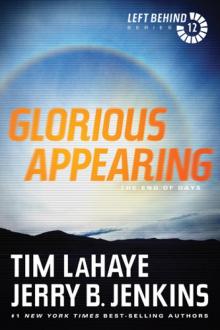 Glorious Appearing
Glorious Appearing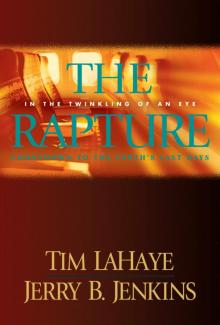 The Rapture: Evil Advances / Before They Were Left Behind
The Rapture: Evil Advances / Before They Were Left Behind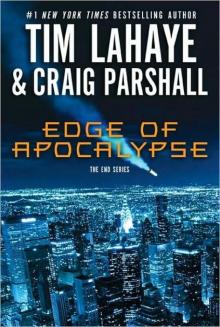 Edge of Apocalypse
Edge of Apocalypse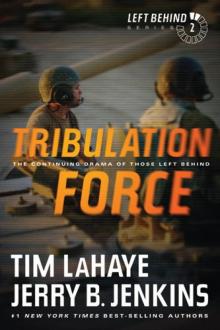 Tribulation Force
Tribulation Force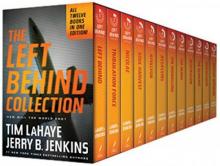 The Left Behind Collection: All 12 Books
The Left Behind Collection: All 12 Books Black Friday
Black Friday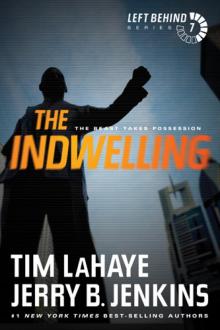 The Indwelling
The Indwelling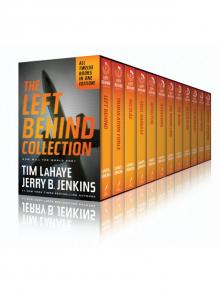 The Left Behind Collection
The Left Behind Collection